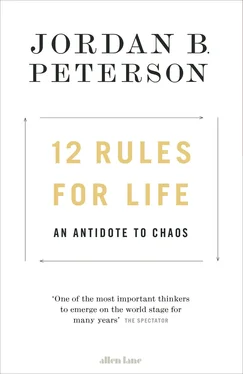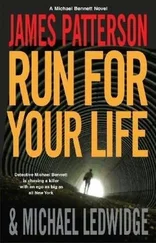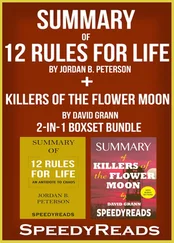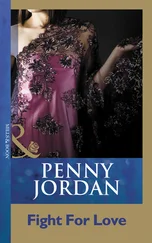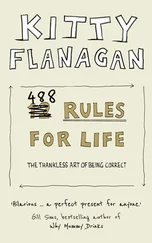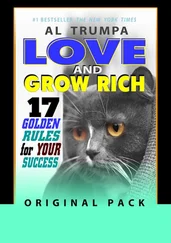Ideologies are simple ideas, disguised as science or philosophy, that purport to explain the complexity of the world and offer remedies that will perfect it. Ideologues are people who pretend they know how to “make the world a better place” before they’ve taken care of their own chaos within. (The warrior identity that their ideology gives them covers over that chaos.) That’s hubris, of course, and one of the most important themes of this book, is “set your house in order” first, and Jordan provides practical advice on how to do this.
Ideologies are substitutes for true knowledge, and ideologues are always dangerous when they come to power, because a simple-minded I-know-it-all approach is no match for the complexity of existence. Furthermore, when their social contraptions fail to fly, ideologues blame not themselves but all who see through the simplifications. Another great U of T professor, Lewis Feuer, in his book Ideology and the Ideologists , observed that ideologies retool the very religious stories they purport to have supplanted, but eliminate the narrative and psychological richness. Communism borrowed from the story of the Children of Israel in Egypt, with an enslaved class, rich persecutors, a leader, like Lenin, who goes abroad, lives among the enslavers, and then leads the enslaved to the promised land (the utopia; the dictatorship of the proletariat).
To understand ideology, Jordan read extensively about not only the Soviet gulag, but also the Holocaust and the rise of Nazism. I had never before met a person, born Christian and of my generation, who was so utterly tormented by what happened in Europe to the Jews, and who had worked so hard to understand how it could have occurred. I too had studied this in depth. My own father survived Auschwitz. My grandmother was middle-aged when she stood face to face with Dr. Josef Mengele, the Nazi physician who conducted unspeakably cruel experiments on his victims, and she survived Auschwitz by disobeying his order to join the line with the elderly, the grey and the weak, and instead slipping into a line with younger people. She avoided the gas chambers a second time by trading food for hair dye so she wouldn’t be murdered for looking too old. My grandfather, her husband, survived the Mauthausen concentration camp, but choked to death on the first piece of solid food he was given, just before liberation day. I relate this, because years after we became friends, when Jordan would take a classical liberal stand for free speech, he would be accused by left-wing extremists as being a right-wing bigot.
Let me say, with all the moderation I can summon: at best , those accusers have simply not done their due diligence. I have; with a family history such as mine, one develops not only radar, but underwater sonar for right-wing bigotry; but even more important, one learns to recognize the kind of person with the comprehension, tools, good will and courage to combat it, and Jordan Peterson is that person.
My own dissatisfaction with modern political science’s attempts to understand the rise of Nazism, totalitarianism and prejudice was a major factor in my decision to supplement my studies of political science with the study of the unconscious, projection, psychoanalysis, the regressive potential of group psychology, psychiatry and the brain. Jordan switched out of political science for similar reasons. With these important parallel interests, we didn’t always agree on “the answers” (thank God), but we almost always agreed on the questions.
Our friendship wasn’t all doom and gloom. I have made a habit of attending my fellow professors’ classes at our university, and so attended his, which were always packed, and I saw what now millions have seen online: a brilliant, often dazzling public speaker who was at his best riffing like a jazz artist; at times he resembled an ardent Prairie preacher (not in evangelizing, but in his passion, in his ability to tell stories that convey the life-stakes that go with believing or disbelieving various ideas). Then he’d just as easily switch to do a breathtakingly systematic summary of a series of scientific studies. He was a master at helping students become more reflective, and take themselves and their futures seriously. He taught them to respect many of the greatest books ever written. He gave vivid examples from clinical practice, was (appropriately) self-revealing, even of his own vulnerabilities, and made fascinating links between evolution, the brain and religious stories. In a world where students are taught to see evolution and religion as simply opposed (by thinkers like Richard Dawkins), Jordan showed his students how evolution, of all things, helps to explain the profound psychological appeal and wisdom of many ancient stories, from Gilgamesh to the life of the Buddha, Egyptian mythology and the Bible. He showed, for instance, how stories about journeying voluntarily into the unknown—the hero’s quest—mirror universal tasks for which the brain evolved. He respected the stories, was not reductionist, and never claimed to exhaust their wisdom. If he discussed a topic such as prejudice, or its emotional relatives fear and disgust, or the differences between the sexes on average, he was able to show how these traits evolved and why they survived.
Above all, he alerted his students to topics rarely discussed in university, such as the simple fact that all the ancients, from Buddha to the biblical authors, knew what every slightly worn-out adult knows, that life is suffering. If you are suffering, or someone close to you is, that’s sad. But alas, it’s not particularly special. We don’t suffer only because “politicians are dimwitted,” or “the system is corrupt,” or because you and I, like almost everyone else, can legitimately describe ourselves, in some way, as a victim of something or someone. It is because we are born human that we are guaranteed a good dose of suffering. And chances are, if you or someone you love is not suffering now, they will be within five years, unless you are freakishly lucky. Rearing kids is hard, work is hard, aging, sickness and death are hard, and Jordan emphasized that doing all that totally on your own, without the benefit of a loving relationship, or wisdom, or the psychological insights of the greatest psychologists, only makes it harder. He wasn’t scaring the students; in fact, they found this frank talk reassuring, because in the depths of their psyches, most of them knew what he said was true, even if there was never a forum to discuss it—perhaps because the adults in their lives had become so naively overprotective that they deluded themselves into thinking that not talking about suffering would in some way magically protect their children from it.
Here he would relate the myth of the hero, a cross-cultural theme explored psychoanalytically by Otto Rank, who noted, following Freud, that hero myths are similar in many cultures, a theme that was picked up by Carl Jung, Joseph Campbell and Erich Neumann, among others. Where Freud made great contributions in explaining neuroses by, among other things, focusing on understanding what we might call a failed-hero story (that of Oedipus), Jordan focused on triumphant heroes. In all these triumph stories, the hero has to go into the unknown, into an unexplored territory, and deal with a new great challenge and take great risks. In the process, something of himself has to die, or be given up, so he can be reborn and meet the challenge. This requires courage, something rarely discussed in a psychology class or textbook. During his recent public stand for free speech and against what I call “forced speech” (because it involves a government forcing citizens to voice political views), the stakes were very high; he had much to lose, and knew it. Nonetheless, I saw him (and Tammy, for that matter) not only display such courage, but also continue to live by many of the rules in this book, some of which can be very demanding.
Читать дальше
